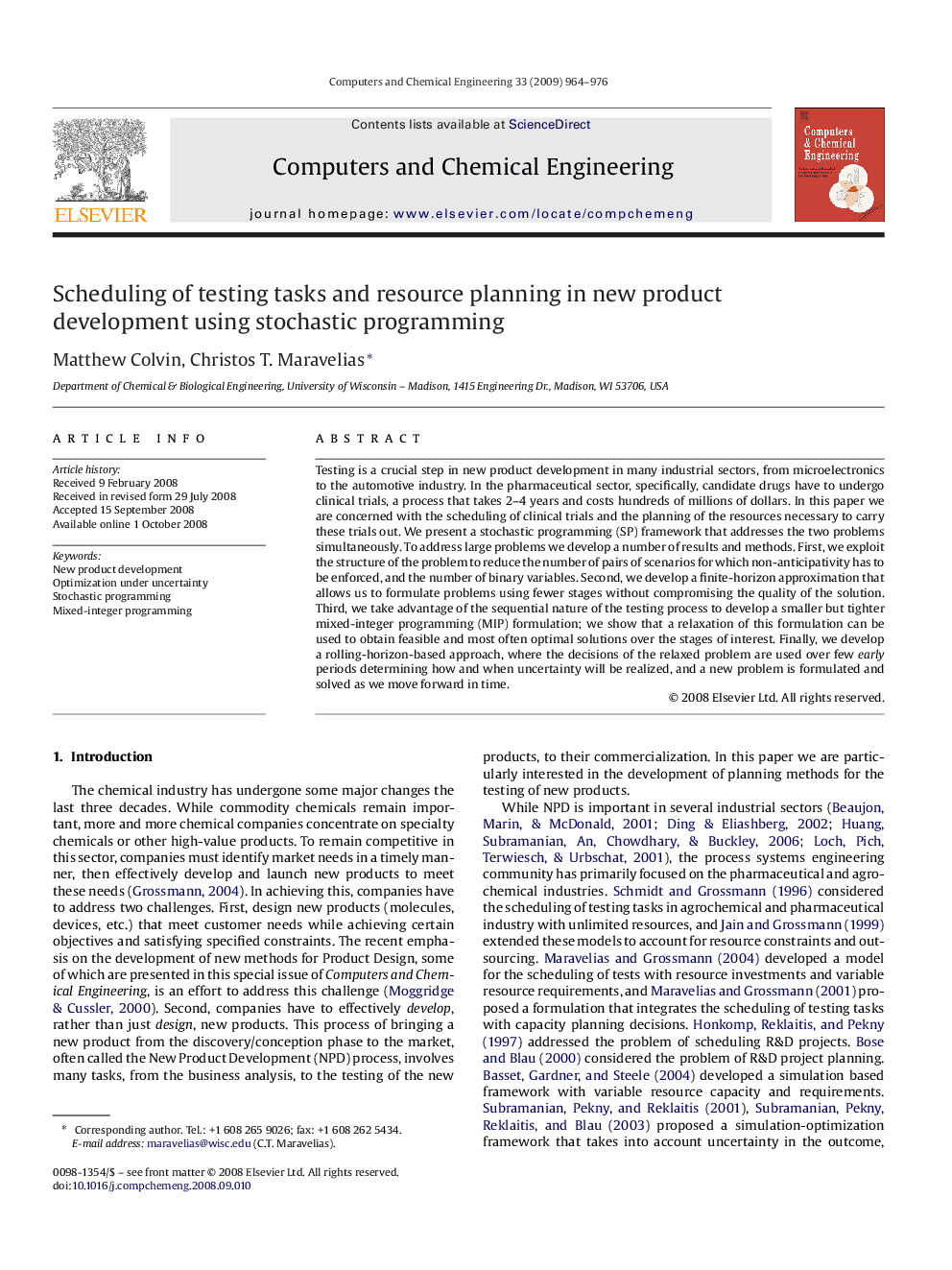| Article ID | Journal | Published Year | Pages | File Type |
|---|---|---|---|---|
| 173768 | Computers & Chemical Engineering | 2009 | 13 Pages |
Testing is a crucial step in new product development in many industrial sectors, from microelectronics to the automotive industry. In the pharmaceutical sector, specifically, candidate drugs have to undergo clinical trials, a process that takes 2–4 years and costs hundreds of millions of dollars. In this paper we are concerned with the scheduling of clinical trials and the planning of the resources necessary to carry these trials out. We present a stochastic programming (SP) framework that addresses the two problems simultaneously. To address large problems we develop a number of results and methods. First, we exploit the structure of the problem to reduce the number of pairs of scenarios for which non-anticipativity has to be enforced, and the number of binary variables. Second, we develop a finite-horizon approximation that allows us to formulate problems using fewer stages without compromising the quality of the solution. Third, we take advantage of the sequential nature of the testing process to develop a smaller but tighter mixed-integer programming (MIP) formulation; we show that a relaxation of this formulation can be used to obtain feasible and most often optimal solutions over the stages of interest. Finally, we develop a rolling-horizon-based approach, where the decisions of the relaxed problem are used over few early periods determining how and when uncertainty will be realized, and a new problem is formulated and solved as we move forward in time.
